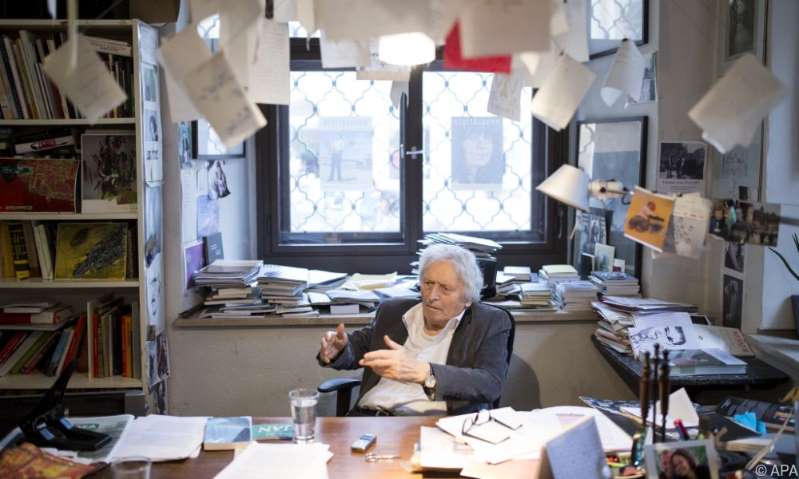The archive of the Austrian literary magazine “manuskripte” has been bought by the science department of the state of Styria. The archives of the past 60 years were taken over by the Styrian State Library. After they have been developed, they will be handed over to the Franz Nabl Institute for scientific development. The purchase price, based on two reports, was 110,000 euros, communicated by Kommunikation Steiermark on Tuesday.

Image: APA
Alfred Kolleritsch, who published the literary magazine Manuskripte for 60 years, passed away in May of the previous year. 227 booklets had been published since then, and the correspondence and contemporary documents were kept in the “manuscripts” rooms in the Palais Attems on Sackstrasse. The 360 or so containers are now going to the Styrian State Library and will then be transferred to the Franz Nabl Institute in Graz on permanent loan.
The purchase sum of 110,000 euros is to be used to support literary and literary studies projects worthy of funding, announced Andreas Unterweger, who has published the literary magazine alone since the death of Alfred Kolleritsch last year, in the special edition “How things will go on with literature. 60 years of literary magazine manuskripte ” at. The archive covers the period from 1960 to 2015. According to Katharina Kocher-Lichem, the head of the state library, the first ten years (until 1970) are to be “concentrated and processed immediately” and sent to the Franz Nabl Institute within six months be handed over.
“It was important to us that this archive, which is so important for literary history, remains in Styria and is scientifically processed here,” stated State Councilor for Science Barbara Eibinger-Miedl (ÖVP) on the occasion of the takeover. “This archive is the legacy of Alfred Kolleritsch. Texts that were sent to him and found to be worthy of publication, as well as the corresponding correspondence. This means that the State Library, an institution of science and culture, has been able to acquire valuable holdings again for a long time “, emphasized Cultural Councilor Christopher Drexler (ÖVP).

